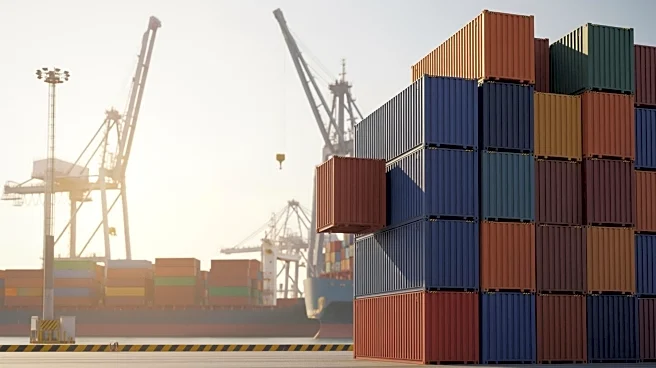What's Happening?
Descartes Systems Group has released its November Global Shipping Report, indicating that U.S. container imports were essentially flat in October. The total imports amounted to 2,306,687 TEU, marking a slight
0.1% decrease from September and a 7.5% drop compared to October 2024. Despite a rebound in imports from China, which rose 5.4% month-over-month, overall volumes have been affected by ongoing trade volatility and suspected frontloading earlier in the year. The report highlights increased port transit time delays and a cautious approach by U.S. importers due to geopolitical friction and regulatory volatility.
Why It's Important?
The flattening of U.S. container imports reflects broader economic uncertainties and trade tensions that could impact supply chain dynamics. Importers are exercising caution, which may lead to reduced consumer demand and slower economic growth. The increase in imports from China suggests a shift in trade patterns, potentially affecting U.S. manufacturing and retail sectors. The persistent trade uncertainty could lead to higher costs and complexity in logistics, influencing business strategies and economic policies.
What's Next?
As trade tensions continue, U.S. importers may further adjust their strategies to mitigate risks associated with geopolitical and regulatory changes. This could involve diversifying supply sources or increasing domestic production. The logistics industry may need to adapt to changing import patterns and address port congestion issues. Policymakers might consider revising trade agreements or tariffs to stabilize the import market and support economic growth.
Beyond the Headlines
The ongoing trade volatility could have long-term implications for global supply chains, potentially leading to shifts in international trade relations. Companies may need to invest in technology and infrastructure to enhance supply chain resilience. The environmental impact of fluctuating import volumes and increased shipping activities could also become a concern, prompting discussions on sustainable logistics practices.










